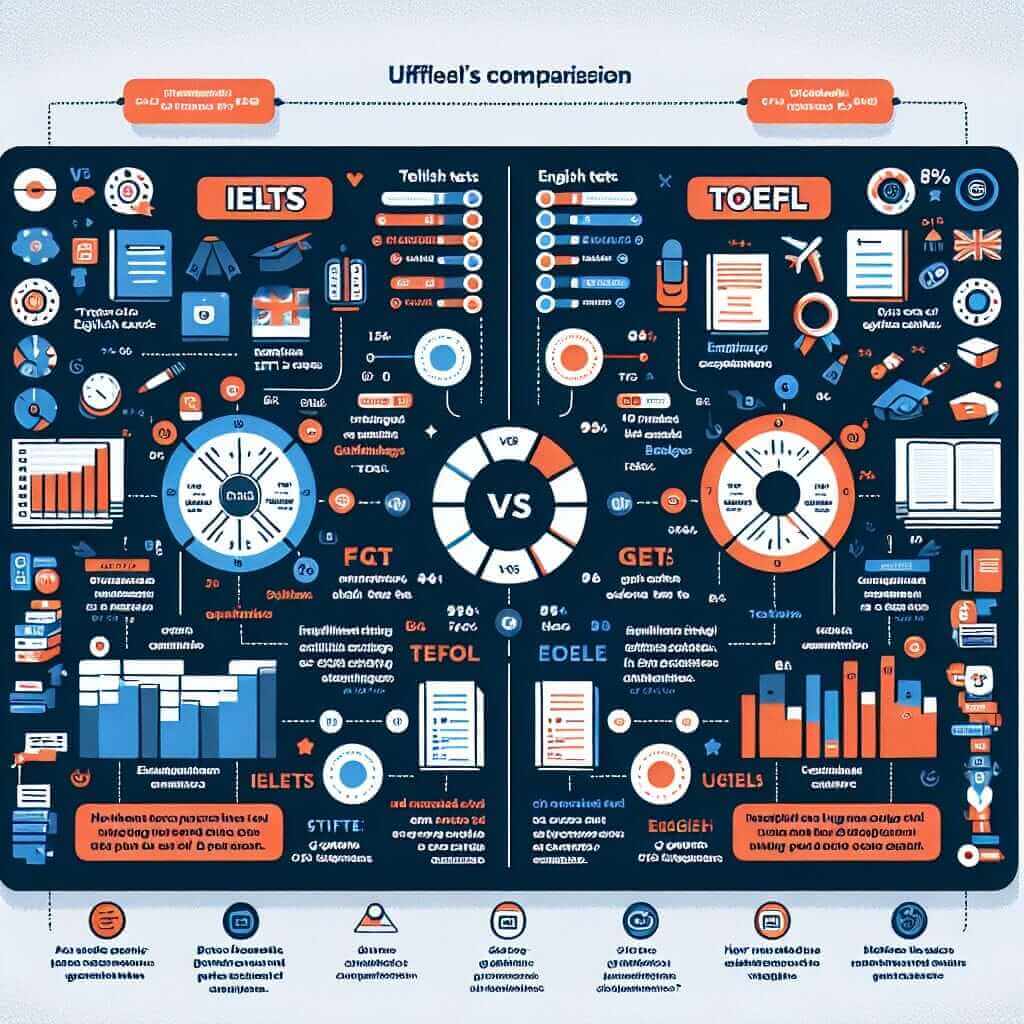Choosing between the IELTS (International English Language Testing System) and the TOEFL (Test of English as a Foreign Language) is a common dilemma for those aiming to study or work in an English-speaking environment. As an IELTS instructor with over 20 years of experience, I’ve guided countless students through this decision-making process. This article will equip you with the knowledge to make the best choice for your academic or professional journey.
Understanding the Core Differences
While both tests assess your English proficiency, they differ in format, scoring, and emphasis:
IELTS:
- Focus: Assesses your ability to use English in academic, social, and professional contexts.
- Format: Includes four sections – Listening, Reading, Writing, and Speaking. The Speaking test involves a face-to-face interview with an examiner.
- Scoring: Uses a band score system from 1 (non-user) to 9 (expert) for each section and an overall band score.
- Versions: Offered in two versions: Academic and General Training.
TOEFL:
- Focus: Primarily evaluates academic English skills required for university study.
- Format: Comprises four sections – Reading, Listening, Speaking, and Writing. The Speaking section involves recording your responses to prompts.
- Scoring: Provides a score out of 120, with each section scored out of 30.
- Version: Primarily internet-based (TOEFL iBT).
Factors to Consider When Choosing
1. Your Purpose:
- University Admission: Check the specific requirements of your target institutions. Some universities might prefer one test over the other, or accept both.
- Professional Registration: Certain professions, like nursing or engineering, may require a specific test or minimum score.
- Visa Applications: Immigration authorities in countries like Canada, Australia, and the UK often accept both IELTS and TOEFL.
2. Test Format and Comfort Level:
- Speaking Test Preference: If you thrive in face-to-face interactions, the IELTS Speaking test might be more suitable. If you prefer structured responses, the recorded format of the TOEFL Speaking section could be advantageous.
- Writing Style: The IELTS Writing test includes a wider range of task types, while the TOEFL focuses primarily on academic essays.
3. Personal Strengths and Weaknesses:
- Accent Familiarity: The IELTS features a variety of accents, reflecting its global use. The TOEFL predominantly uses North American accents.
- Note-taking Skills: The TOEFL Listening section requires note-taking during lectures, while the IELTS provides time for note-taking in some parts.

Example Scenario:
Let’s say you’re applying to universities in the UK for a Master’s in Business Administration (MBA). Many UK universities accept both IELTS and TOEFL. However, an MBA program might favor the IELTS as it assesses a broader range of English skills required in a business context.
Tips for Making the Right Decision:
- Research Extensively: Thoroughly investigate the requirements of your target institutions or organizations.
- Take Practice Tests: Familiarize yourself with the format and question types of both exams to gauge your comfort level.
- Seek Expert Guidance: Consult with experienced IELTS/TOEFL instructors to gain personalized advice based on your strengths and weaknesses.
Conclusion
Selecting between the IELTS and TOEFL is a personal decision. By carefully considering your purpose, preferred test format, and individual learning style, you can confidently choose the exam that best aligns with your goals. Remember, thorough preparation is key to achieving success in either test. Good luck!